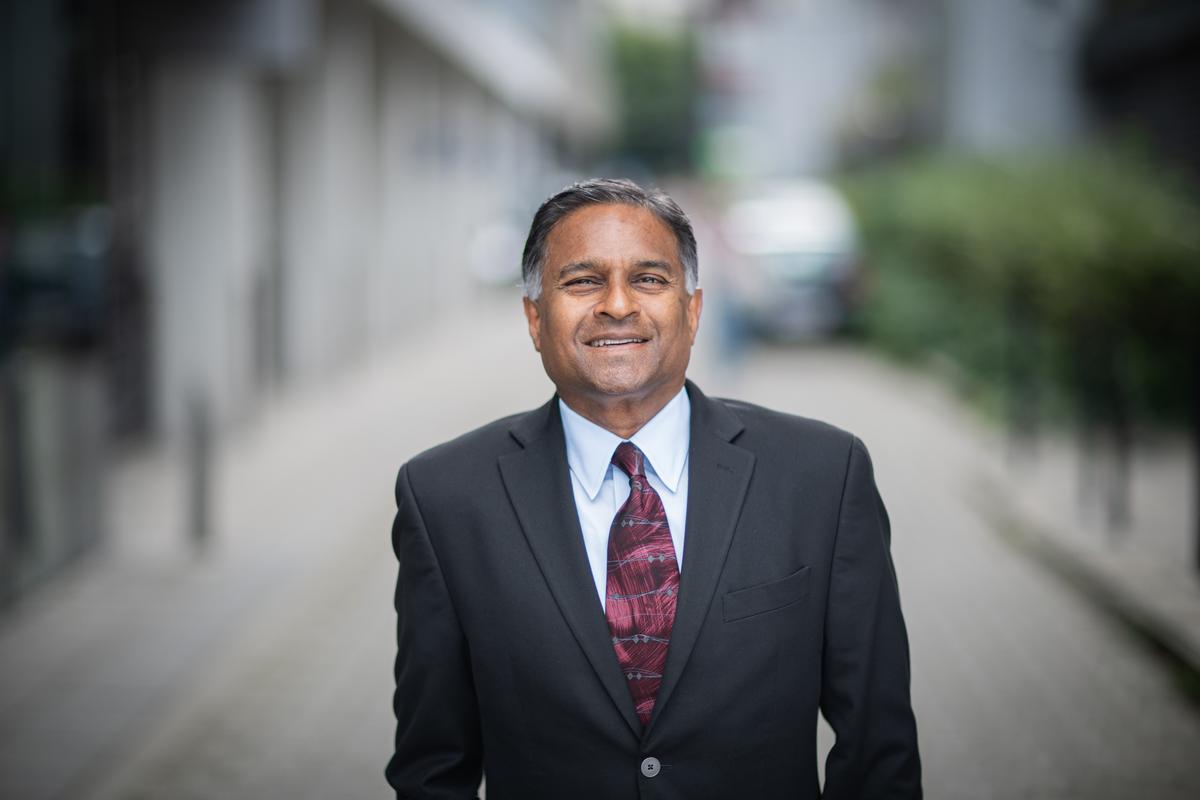US Ambassador Gautam A. Rana reiterates his optimism about the future of Slovakia and US-Slovak relations in the interview with The Slovak Spectator. Addressing potential challenges in his diplomatic role, Rana acknowledges public criticisms from some Slovak government officials but maintains that his relationship with key figures, including Prime Minister Robert Fico, remains productive.
“I’m confident, no matter what’s happened before, that we’re [Slovakia and the USA] going to do even greater things in the future,” he says.
Rana underscores Slovakia’s ongoing support for Ukraine.
The diplomat also reaffirms his stance on the importance of press freedom and democracy, noting that journalists should be able to work without fear of violence or intimidation.
During Fourth of July celebrations in Bratislava you made a speech in which you said: “I dream of a brighter, better future for the United States and Slovakia, and I invite you to dream with me.” The last time we spoke was before parliamentary elections and the formation of the new government. When you get up in the mornings now, do you still feel the same about the future for Slovakia and US-Slovak relations as you did then?
My feelings towards the future of Slovakia and the future of Slovak-US relations haven’t changed at all. There are a couple of parts to this. One is that I think as an outsider, I’m not Slovak. Slovakia has made incredible progress over the last 30 years of its independence. If you look at any socioeconomic indicator, where Slovakia was in 1993 and where you are in 2024, you made incredible progress. And I’ve seen this. I’ve lived in 11 countries around the world. I can see how far you have progressed economically, politically, developmentally. The two great success stories of Slovakia’s development were joining NATO and the EU. NATO provides you with the security shield, the security that many countries around the world simply don’t have. And the EU provides you with economic security. It allows you access to the free market, access to wider education and EU development funds.
From a US perspective, you’re a NATO ally, you’re an EU partner. Our relationship with the current government continues on the issues that we’ve always worked on, which are security, economic relations, people-to-people ties. And I’m confident that what we’ve accomplished over the last 30 years is only the start.
No difficult mornings because of Slovak politics, then?
Not at all. We continue to work with this government. My single most important mandate is Ukraine. This is an existential issue, I believe, for not only the European Union and Europe, but also for Slovakia. This is NATO’s highest priority right now, helping the Ukrainian people in their fight against Russia’s unprovoked, full-scale invasion.
Your government continues to provide support at the NATO and EU levels. And this remains a very important relationship.
On economic issues, we’ll continue to look for opportunities and to work with Slovakia. I’m very pleased with the fact that Westinghouse is going to be the supplier for nuclear fuel in the future and help Slovakia end its nuclear dependence on Russia.
Previous governments did not criticise America or your embassy, but this government sometimes does. So, isn’t your work more challenging than a year ago?
As a diplomat, I’ve worked all over the world. And, you know, I won’t comment on statements made by this government. I would refer you to the members of the government who have made those statements. What I can say is that I continue to have a very productive relationship with members of the Slovak government, including Prime Minister Robert Fico, Defence Minister Robert Kaliňák, and Foreign Minister Juraj Blanár, as well as with President Peter Pellegrini.
Last December, Premier Fico specifically talked about you in parliament, urging you to stop making statements about Slovakia’s internal affairs. What did you think when you heard what he said?
I’ll leave it to the prime minister to comment. I actually have a very good relationship with the prime minister, and with other members of this government. We work cooperatively on a wide range of issues, and we’ll continue working on them.
Have you met with Smer MEP Ľuboš Blaha, who is a vocal critic of the USA and often talks about the US embassy in Bratislava?
I haven’t. You know, I tend to focus on meetings with ministers, particularly in portfolios that are important to the United States.


 US Ambassador to Slovakia Gautam A. Rana. (source: SME - Marko Erd)
US Ambassador to Slovakia Gautam A. Rana. (source: SME - Marko Erd)